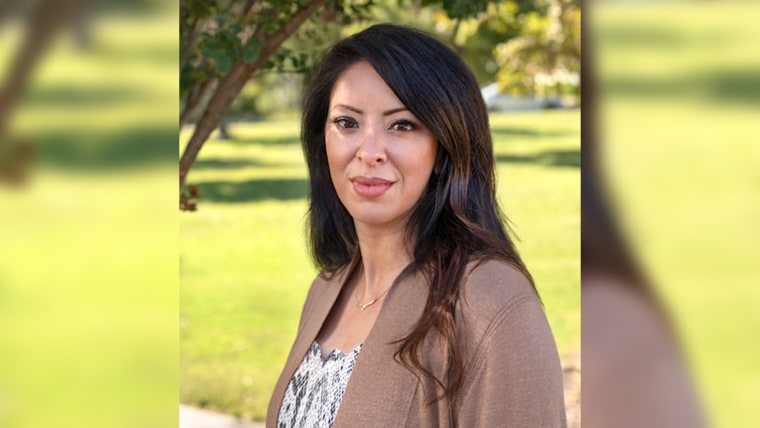After her 8-year tour in the Navy ended in 2002, U.S. Navy Corpsman Stephanie Gattas knew that something was wrong with her mental state. She became easily upset. She would lash out at colleagues and couldn’t hold a job. She had trouble focusing on the tasks in front of her.
“I distinctly remember my mother telling me that the service didn’t send back her daughter,” said Gattas. “My mother had never said anything like that before.”
Gattas, now 45, accepted that she needed help and was probably suffering from post-traumatic stress disorder (PTSD) due to her experiences in the military. But seeking help proved more difficult than she anticipated.
“I kept running across organizations that were focused on men. And rightfully, there’s something out there for men,” Gattas said. “But, I just couldn’t find anything that made me feel like I would be understood as a woman veteran.”
RELATED: How this Marine found her voice, confidence to pursue the career she loves
To fill the void, Gattas founded the Pink Berets in 2015 in her home state, Texas. The nonprofit offers therapeutic services and support to women vets across the country who suffer from PTSD, military sexual trauma, combat trauma stress and more.
The Pink Berets offers immersive therapy programs including professional equine therapy, culinary art therapy, yoga and outdoor excursions in Texas. All services are free of charge and tailored to the individual.
“The culinary program was particularly personal for me. I love to cook,” said Gattas. “I found that I became very focused on what was before me. You have to be in the present in the kitchen, because if you’re not you can burn yourself, cut yourself, you can light your kitchen on fire. Instead, you find yourself breathing.”
Since the Covid-19 pandemic started, the organization has expanded its virtual support programs across the country. Gattas said the response has been huge because they are often the only, or one of the few women-based veterans programs available in certain states, such as Alaska. The organization has served about 300 women in 2021 alone.
Women represent 16 percent of enlisted forces and 19 percent of the officer corps, according to the Council on Foreign Relations.
Servicewomen face particular challenges. They are outnumbered and vulnerable to sexual harassment and assault. They’re often not given credit for their achievements, according to Gattas.
“When I was in the military, we were put in harm’s way so many times. The women weren’t recognized, the men were,” said Gattas. “I remember standing there with my jaw dropped, asking, ‘Why are you honoring this guy?’ It’s things like that that women will continue to carry.”
RELATED: Army veteran advocates for women with PTSD
A 2018 study found that women veterans are more likely to experience PTSD than their male counterparts. Women veterans are also more likely to develop disordered eating as a result of their experiences.
The U.S. Department on Veteran Affairs recently found that, while women vets commit suicide at a lower rate than men, the suicide rates of female veterans were on the rise, from 14.4 per 100,000 in 2001 to 17.3 per 100,000 in 2014.
Women-focused mental health care for veterans is rare. The VA offers women veterans health care, but Gattas said she was nervous about the possibility of speaking to a male doctor. She also didn’t want to be perceived as weak.
“I don’t blame the VA at all. In many ways it was my own barrier,” Gattas said. “But there is a lot of work to be done in terms of making women feel protected.”
RELATED: How one U.S. Marine went from serving in Afghanistan to thriving in the world of comedy
As CEO, Gattas is hands on at Pink Berets events and interacts directly with the women in the programs. In fact, she was named a L'Oréal Paris Woman of Worth in 2020. She said her own mental health has improved.
She said, tearing up: “I see these women healing, and that process has been healing me.”
